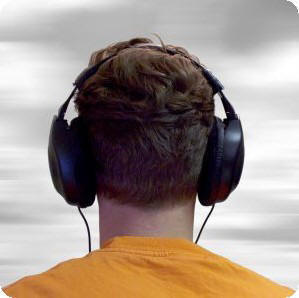Modals
Welcome to the ESL HELP! Desk, where all activities and exercises are authentic English, from learners of English. Be sure to check out our many aspects of our website, including our blog, our Vocabulary lessons, and our Library, by clicking on the many links above.
In today's lesson we continue
our unit on modals. Today's topic is:
Commonly Used Modals
Before you begin the activities, you may want to begin with the first unit in this chapter, What Is a Modal? (This lesson is open to members only but membership is free!)
Commonly Used Modals
In this unit we discuss the most commonly used modals in the United States and Canada. We organize our list based on, in order:
-
The information that the modal conveys
-
The time reference
In this lesson, we will discuss four and in the next lesson we will discuss the final four.
This lesson
| 100% CERTAINTY | |
| future |
will
+ (base form)
will not, won't + (base form) The marriage will work out. The marriage will not (won't) work out. |
| past |
would have
+
past participle
would not have + past participle Their marriage would have worked out. Their marriage would not have worked out. |
| POSSIBILITY (less than 100% certainty) | |
| future |
could
+ (base form)
could not + (base form), couldn't + (base form) |
| past | |
| future |
may
+ (base form)
might
+ (base
form) may not + (base form) might not + (base form) Not getting divorced may cause even more problems. Not getting divorced might cause even more problems. |
| past |
may have
+
past participle
might have
+
past participle
may not have + past participle might not have + past part. Their marriage might have worked out. Their marriage might not have worked out. |
| ABILITY | |
| present |
can
+ (base form)
can't ~, cannot + (base form) They are well and can sit and stand. They are sick and can't sit or stand. |
| past |
could
+ (base form)
couldn't + (base form) They were sick and couldn't sit or stand. |
|
(be) able to
+ (base form)
not (be) able to + (base form) |
|
| present | They are sick and are not able to sit or stand. |
| past | They were sick and were not able to sit or stand. |
| future | They are sick and will not be able to sit or stand. |
| REQUESTS and PERMISSION (making a request and asking permission) | |
| present |
may
+ (base form)
may not (mayn't is archaic and rare) can + (base form) (informal) can't + (base form), cannot + (base form) The teacher said that I may take the test during class. The teacher said that I can take the test during class. My teacher said that I can't take the test during class. |
|
could
+ (base form) could not + (base form) Could you please send me more information? I asked my neighbor, "Could you please not play the music so loudly?" |
|
| past | The teacher said that I can take the test during class. |
Next...
We discuss more of most commonly used modals and their uses.
-
advisability with the strong threat of a bad result;
-
preference
-
necessity
-
strong advice
Do you have any questions or comments about this lesson? Email us your questions about English grammar by way of our blog.
All material is copyrighted, Software for Students. Copying for PERSONAL USE ONLY. Are you a teacher who wants to use our Grammar HELP! Student Handbook lessons in your classroom? Contact Software for Students for permission to use in schools or other educational institutions.
.gif)

